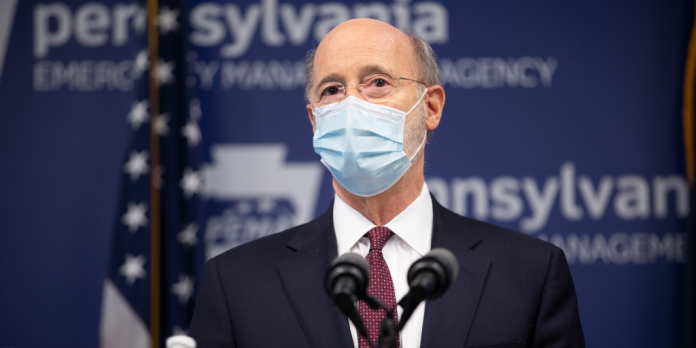As enrollment and taxpayer costs have swelled during the COVID-19 pandemic, the urgent need to hold charter schools and cyber charter schools accountable has increased. Gov. Tom Wolf unveiled a bipartisan plan that holds low-performing charter schools accountable to improve the quality of education, protects taxpayers by reining in skyrocketing charter school costs and increases the transparency of for-profit companies that run many charter schools.
“Every child in Pennsylvania deserves a high-quality education that prepares them to succeed in life, but our current law lets some charter schools perform poorly at the expense of students enrolled in traditional district schools,” said Wolf. “The pandemic has made the problem worse as charter school enrollment has increased. We must hold charters accountable to students, parents and taxpayers. Anything less should be unacceptable.”
According to Wolf, the state’s “flawed and outdated” charter school law is regarded as one of the worst in the nation. The uncontrolled cost of charter schools is draining funding from traditional neighborhood public schools, forcing school districts to cut educational programs and hike local property taxes.
Last year, taxpayers spent $2.1 billion on charter schools, including more than $600 million on cyber schools. This year, the burden on taxpayers will increase by more than $400 million. Between 2013 and 2019, 44 cents of every $1 of new property taxes went to charter schools, according to the Pennsylvania Association of School Business Officials.
Features of Wolf’s plan include:
– Saving school districts more than $229 million a year by better aligning charter school funding to their actual costs so school districts are not forced to overpay
– Creating charter school performance standards that hold low-performing charter schools accountable and reward high-performing charters with more flexibility
– Limiting cyber school enrollment until their educational quality improves
– Requiring charter schools to have policies to prevent nepotism and conflicts of interest so leaders do not use charter schools for their own financial benefit
– Ensuring charter schools and their leaders follow requirements of the State Ethics Commission, since they are public officials
Additionally, Wolf is directing the Department of Education to review how some cyber schools spent their federal emergency CARES Act funds to ensure the schools followed federal laws and regulations.
“I am pleased to have many partners in the legislature who are raising concerns about charter school management and looking for ways to fix our broken charter school law,” said Wolf. “Now is the time to act, and I hope to see a bill with concrete, sustainable changes to the charter school law come to my desk this year.”


